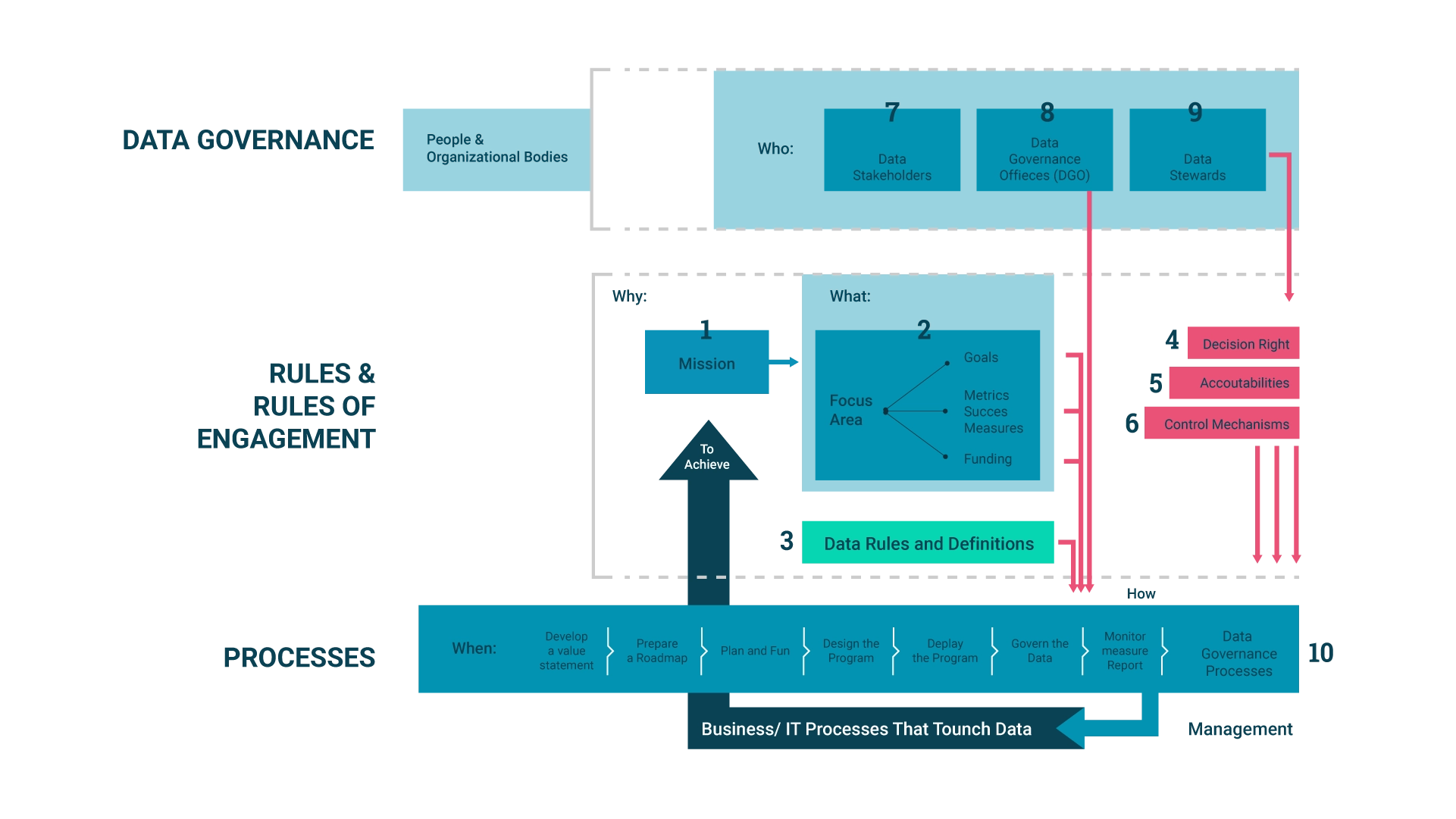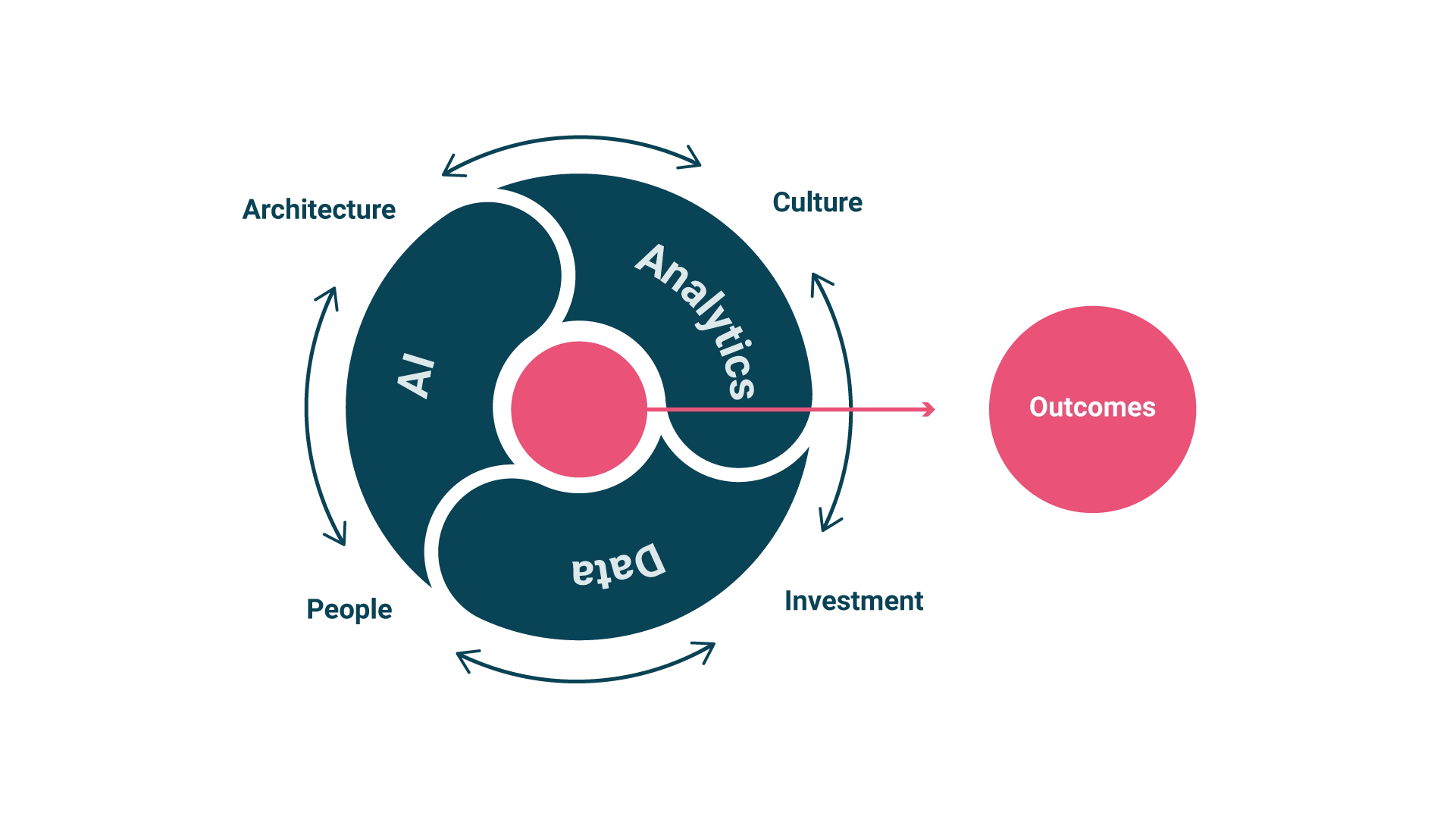Implementing Data Governance for AI projects requires a holistic approach involving different aspects of the organization:
- Stakeholder engagement
Stakeholder engagement is critical to the success of data governance. Stakeholders include both those responsible for data management and those responsible for AI projects. Data Governance must be developed in collaboration with stakeholders to ensure compliance with the needs of the organization and AI projects.
- Defining policies and standards for data management
The establishment of policies and standards for data management assumes primary importance for the proper implementation of Data Governance. These policies and standards must be based on the requirements of the organization and AI projects. They must also be updated regularly to reflect new organizational and industry requirements.

